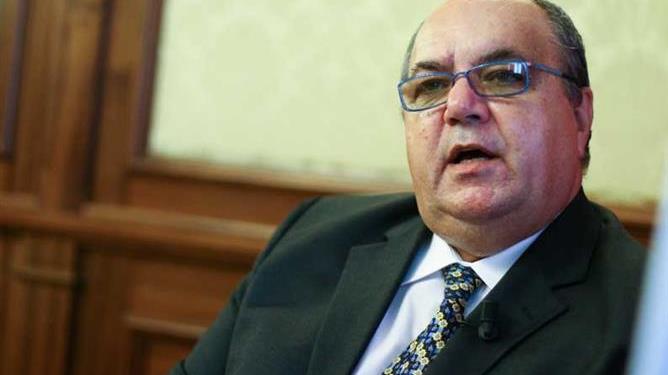Former Chief Justice Joseph Said Pullicino referred to the issue of positions of trust in the Ombudsplan 2015, which gives a detailed account of the cases handled by his office.
Members of the public service should be apolitical and be loyal to all administrations, he writes, but this does not mean that government ministers to not have the right to appoint persons of trust to draft and implement its policies.
"It was long thought that these appointments should be restricted in number and limited to the ministers' private secretariats. During the past few years, however, the demarcation line between recruitment in the civil service and ministries is becoming more blurred. Successive governments are adopting a policy of directly engaging people within departments and authorities. These appointments are not limited to the highest levels of public administration."
The Ombudsman's opinion is that, when these cases become a part of the executive's style, rather than being isolated and exceptional cases, they give rise to situations of lack of transparency and accountability. This might be the case for a number of reasons, including the lack of appointments throught calls for applications and respect to established procedures for the employment of persons into the public service.

Definition of 'person of trust' too vague
"In some aspects, we are moving towards the American mentality where public service employees are considered to be no longer valid when there is a change in government and the new administration thinks it has a right to replace them with people loyal to it." Whilst not expressing his opinion on which system might be the best, the Ombudsman asked whether the time has come for a debate on the controversial subject. "Whatever the choice, any system of engagement with the public service should be completely transparent, subject to clear and unambiguous laws that ensure accountability."
The former Chief Justice also noted that the vague definition of a "position of trust" might be being used as an excuse by governments to make appointments that might not be completely in line with the law. "The widening of the definition of persons of trust might lead to allegations of abuse and discrimination. The government might be seen as trying to avoid established procedures that regulate employment in the civil service and the public sector." His office has, in fact, received a number of related complaints.

The army complaints dispute
The Ombudsman also referred to the ongoing dispute with the Home Affairs Ministry over who has jurisdiction to hear complaints of injustices by AFM members. Home Affairs Minister Manuel Mallia is insisting that this is the responsibility of the newly established Army Injustices Commission, headed by Brigadier (ret'd) Maurice Calleja but the Ombudsman is arguing that the job of hearing these complaints has been the responsibility of his office for many years. At one point, the Ombudsman had also warned of taking the dispute to court.
Writing in the Ombudsplan report, Joseph Said Pullicino said the disagreement should never have arisen; certainly not in the way it did. "The army complaints procedure was agreed upon in top level negotiations during a previous administration. Even the current administration has used that system in two cases."
The Ombudsman said the current administration has every right to disagree with the system and to express a different interpretation of the laws, which it can amend through Parliament. But unless and until these regulations change, the army is required to observe the standing agreement.
"The Ombudsman also has to observe any amendments to the law but it would have surely been wiser to at least inform and consult with this office - and others involved in the original agreement - before deciding to scrap it. This should have been done not only as an act of courtesy but also because the principles of public administration so require."
The only way to resolve the situation would have been through discussion and, if that failed, by asking the courts to decide who had jurisdiction. The Ombudsman said he is considering whether the time has come for the introduction of a mechanism that allows these issues to be referred to Parliament or its committees. These would ascertain the correct interpretation of the law and avoid potentially lengthy court procedures.

No accountability without transparency
The Ombudsman also spoke on the public's right to information. Without information the public would not be able to correctly judge the administration. Access to information should be the rule, not the exception. "Maybe we should look towards more progressive and liberal countries when it comes to access to information."
Transparency and accountability are not political buzz words, the Ombudsman said. They are the measure of the administration's correctness. There can be no accountability without transparency.
The Ombudsman also said in his closing remarks that the office will keep doing its duty despite the recent unjust criticism campaign by a section of the media. Whilst it accepted constructive criticism, it strongly objects to claims of bias and political prejudice - unfounded allegations which can only cause harm to the institution that strives hard to guarantee peoples' right to a fair administration.

360 new complaints received, 323 cases closed
In the meantime, figures published in the Ombudsplan show that the Ombudsman's Office received 360 new complaints between January and August 2014. During the same period, the office closed 323 cases.
New cases increased by 7.5% over the same period in 2013, however, the Ombudsman explained that new cases decreased in 2013 because of a number of factors, including the change in government. That trend has now stopped and the number of new cases is on the increase again.
Out of 360 new cases, 242 were addressed directly to the the Ombudsman, 55 were addressed to the Health Commissioner, 31 to the Environment Commissioner and 32 to the recently appointed Education Commissioner.
28% of new cases received by the Ombudsman fall in the category of illegal or rigid action taken against employees. 7% were about discrimination, 16% about lack of transparency, 10% about the refusal for information, 22% complained about lack or delay to take action and 17% about a lack of justice or fairness. The Ombudsman's Office noted that complaints of injustice decreased by 11% but complaints of a lack of transparency increased by 5%.

323 cases were concluded in the first eight months of this year - a decrease of 18% over the period between January and August 2013. The Ombudsman said the decrease could be attributed to a number of factors, including a delay by several departments to give the required information to the Ombudsman's office, and more complex cases that required deeper investigations. Of the cases that were concluded, 213 were tackled by the Ombudsman, 38 by the Health Commissioner, 39 by the Environment Commissioner and 33 by the Education Commissioner.
Of the cases handled by the Parliamentary Ombudsman, 4% were deemed to be justified and 12% were not justifiable. 25% of cases were solved during the investigation, 15% were given assistance or advice, 29% did not fall within the office's jurisdiction and 15% expired by time or were trivial cases.
The Ombudsman's Office said not all complaints lead to formal cases. During the indicated period, it received 402 requests for assistance or advice.
The office said there are a number of ways it can be reached by the public.
Complainants can lodge their complaints directly at the Ombudsman's Office or send their complaints by post. 30% of complaints were lodged on the Ombudsman's new website, which was launched in March.